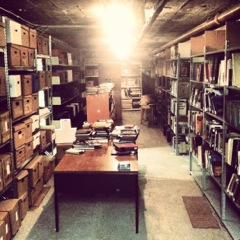Fact or Fiction?: A Game Using Archival Records to Solve Historical Questions
17 July 2014 - 11:38am
 Every week at some point during the school year there are opportunities when the class is ahead of schedule, no assemblies are taking place in the gymnasium, and furiously marking assignments in order to submit them for report cards is not required. On these days teachers have the options to move on with the curriculum, play a movie, assign silent reading and so on. Or, perhaps the teacher suggests to the class playing an educational game that not only involves all students participating in their learning, but also reinforces what students have learned throughout the year. I would like to suggest a game that not only works in the history or social studies classroom, but in a wide range of environments that engages students to collaborate with each other, critically analyze historical evidence, compare and contrast information, authenticate records and have fun.
Every week at some point during the school year there are opportunities when the class is ahead of schedule, no assemblies are taking place in the gymnasium, and furiously marking assignments in order to submit them for report cards is not required. On these days teachers have the options to move on with the curriculum, play a movie, assign silent reading and so on. Or, perhaps the teacher suggests to the class playing an educational game that not only involves all students participating in their learning, but also reinforces what students have learned throughout the year. I would like to suggest a game that not only works in the history or social studies classroom, but in a wide range of environments that engages students to collaborate with each other, critically analyze historical evidence, compare and contrast information, authenticate records and have fun.
The game is called “Fact or Fiction?” and involves the use of archival records. The records could be photographs, letters, receipts, film clips, news clips, advertisements, signs, etcetera.* The teacher begins by posing a problem to the class. The problem could be related to an issue explored earlier in the week or a topic that is particularly interesting to students. Teachers can invite students to submit topic ideas and each week a topic is randomly selected. The teacher then shows a series of records to the class to be analyzed. Students work together in pairs or groups to determine, based on the records/evidence shown to them, which is correct. Students may also try to create timelines from the records or fill in missing gaps. Each pair or group of students has to defend their reasoning to others in the class. After hearing each other’s ideas, students decide as a class which record, story or timeline is correct. The teacher reveals the correct answer and then a class discussion about the types of records used, the history of the topic, and other questions are explored.
I keep using the term “archival” instead of historical, old or dated documents because I believe students need to understand where the information is coming from. If a teacher shows a film clip dating from the 1960s from the online CBC Archives to the class, students should be aware that the clip is an archival record – it was recorded on film reel, used for the news, then stored and kept at the CBC or archive because it was considered an important piece of Canadian history. The film reel was then digitized so that we can all watch the footage at home or in school. By explaining to students these types of processes, where the information is going, how archives work, and why they are important, we can begin to expose students to critical thinking, primary sources, the use of the web, digitization and more. It is only if we as educators use the proper terminology when referring to our sources that will encourage students to learn and understand the proper vocabulary.
“Fact or Fiction?” is a game that can be modified to suit your classroom and lesson needs. It encourages critical thinking, collaborative learning, and participation. In addition, it allows students to assume the role of detective, piecing together facts and weeding out the fictional bits to uncover the true story – an activity historians, archivists, museum professionals, and other history-related professions do all the time. Let’s work with students to equip them with the same problem-solving skills needed in any occupation through engaging and interactive games.
*If you are wondering where to obtain these records, many archives have online websites that publish digital content. A sample list is provided below:
Archives of Ontario: http://www.archives.gov.on.ca/en/index.aspx
Archives of Manitoba: http://www.gov.mb.ca/chc/archives/
CBC Digital Archive: http://www.cbc.ca/archives/
City of Toronto Archives: http://www1.toronto.ca/wps/portal/contentonly?vgnextoid=7cb4ba2ae8b1e310VgnVCM10000071d60f89RCRD&vgnextfmt=defaultt
City of Vancouver Archives: http://searcharchives.vancouver.ca/
Library and Archives Canada: http://www.bac-lac.gc.ca/eng/Pages/home.aspx
Library and National Archives of Québec: http://www.banq.qc.ca/accueil/
Nova Scotia Archives: http://www.novascotia.ca/nsarm/
Smithsonian Institution Archives: http://siarchives.si.edu/
National Archives of the United States: http://www.archives.gov/
How do you use archival collections in interesting ways in your history lessons?
Photo: Archives at the Vancouver Art Gallery, author's photo.
- Se connecter ou créer un compte pour soumettre des commentaires

